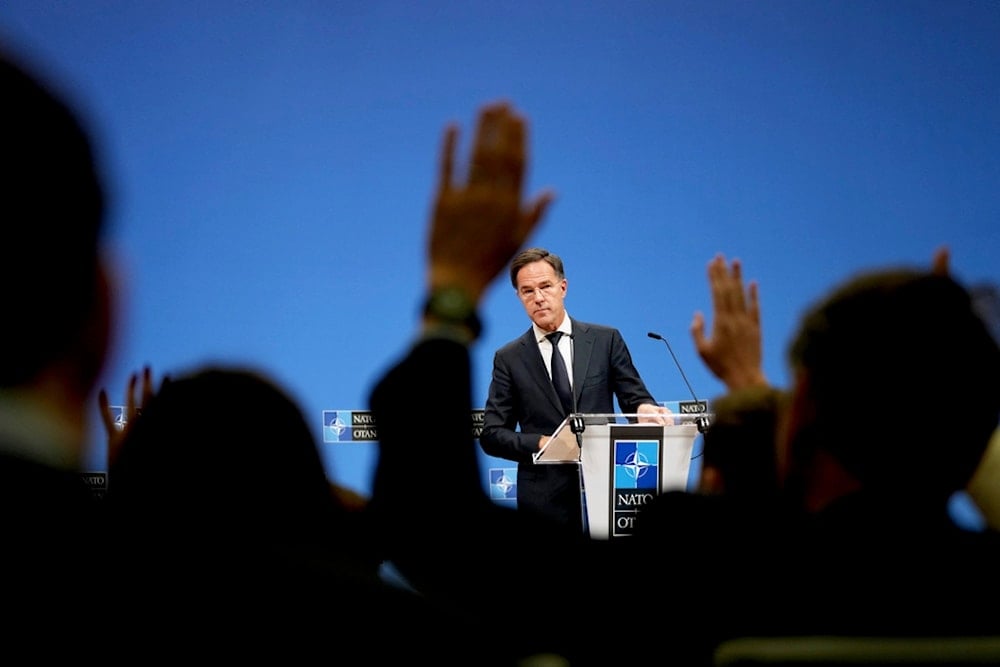NATO leaders urge defense boost amid concerns over potential US shift
Finland, which joined NATO in 2023 alongside Sweden, has significantly enhanced its military strength, including the recent purchase of 64 F-35A fighter jets valued at $9.4 billion.
-

NATO Secretary General Mark Rutte takes questions during a media conference prior to a meeting of NATO foreign ministers at NATO headquarters in Brussels, Tuesday, Dec. 3, 2024. (AP)
The Independent reported on Tuesday that NATO's leaders in Latvia, Estonia, and Finland have raised concerns about Europe's lack of readiness to defend itself against Russia without substantial US involvement. They called for an urgent increase in defense spending across the alliance to address the growing threat posed by Moscow.
"We are not ready. That's absolutely clear," stated Latvian President Edgars Rinkevics. He warned against relying too heavily on the United States, saying, "We can't keep simply hoping for a situation where the US remains much involved in Europe."
Estonian Prime Minister Kristen Michal echoed these sentiments, stressing the need for Europe to strengthen its military capabilities. "We have to ramp up our defense capabilities because of Russia's threat and its inability to be a democracy and operate in a rule-based world," he said.
NATO spending
The three countries, which collectively share a 1,200-mile border with Russia and its ally Belarus, have been among NATO's top spenders on defense relative to their GDP. Estonia allocates 3.4% of its GDP to defense, Latvia spends 3.15%, and Finland invests 2.4%. In comparison, the UK spends 2.3%, though plans are underway to raise that figure to 2.5%.
Finland, which joined NATO in 2023 alongside Sweden, has significantly enhanced its military strength, including the recent purchase of 64 F-35A fighter jets valued at $9.4 billion. "We don't have this because we're worried about Stockholm or London. We have this because we're worried about Moscow," said Finnish President Alexander Stubb.
The leaders also expressed concerns about the potential impact of Donald Trump's return to the White House, given his skepticism of NATO and calls for European nations to contribute more to defense spending. Trump's comments earlier this year suggesting he would allow Russia to "do whatever the hell they want" to underfund NATO members drew sharp criticism for undermining the alliance's core principle of mutual defense.
Read more: EU depleting gas reserves at fastest pace since onset of energy crisis
Delusional defense
While none of the leaders believe Trump would withdraw the US from NATO entirely, they acknowledge the risk of Washington shifting its strategic focus toward China and the Indo-Pacific region. "Their number one nemesis or competitor is China," said Stubb, though he stressed that US engagement in Europe remains vital.
The discussion also highlighted the importance of supporting Ukraine against Russian aggression. Estonian Prime Minister Michal underscored the broader implications of Ukraine's struggle: "If we allow Russia as a regime, as a thug, as a bully, to take something by force... then that would be a very bad message for the future of the democratic world."
The leaders reaffirmed the urgency of Europe's defense industry scaling up production to meet the demands of the conflict. "We are already at the edge of what we have," admitted Rinkevics.

 3 Min Read
3 Min Read









